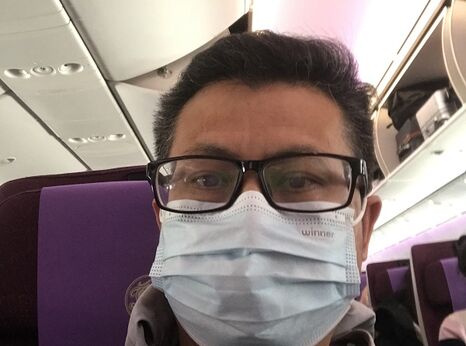Activist on hunger strike after travel ban

Yang Maodong (better known by his pen name Guo Feixiong) is a writer, rights defender and former legal adviser for the Beijing-based Shengzhi Law Office. He has supported various human rights causes in the past decade. In 2005, he participated in a hunger strike in response to a call by prominent human rights lawyer Gao Zhisheng for a “hunger strike group” to protest the government’s crackdown on human rights activists. The hunger strike was also a protest against Yang’s earlier detention and beatings that followed his legal support for residents of Taishi Village, Guangdong Province, who were calling for the ouster of a village official they had accused of corruption in 2005.
Yang Maodong has been previously imprisoned twice. He was arrested in February 2006 and sentenced to five years in prison in November 2007 after being convicted of the crime of “illegal business activity” for publishing a book about a major corruption scandal in northeastern China. Yang was subjected to several forms of torture and other ill-treatment while in detention, including being beaten while hanging from the ceiling by his arms and legs and being shocked with an electric baton to his face and genitals. Yang Maodong stated that he was tortured into confessing this crime and that the torture led him to attempt suicide. Yang Maodong was released from prison in September 2011.
Yang was detained again in August 2013 after he took part in a large public protest against media censorship in Guangzhou, Guangdong Province. On 27 November 2015, he was convicted of “gathering a crowd to disrupt order in a public place” and “picking quarrels and provoking trouble” and given a six-year prison sentence. In 2016, he held a hunger strike for over three months to protest his ill-treatment by the authorities. He was released from prison in August 2019.
Yang Maodong’s wife Zhang Qing left China together with their son and daughter and obtained asylum in the US in 2009. Zhang has been diagnosed with cancer and is now undergoing a 24-week chemotherapy treatment after a major surgery in early January.
In September of 2015, Yang won the Frontline Defenders Award for his human rights activism.
Amnesty International has documented numerous cases in which the Chinese authorities arbitrarily restrict the right to freedom of movement and travel of human rights defenders and dissidents. These restrictions include rejecting passport applications citing national security reasons, stopping individuals at airports, and banning individuals from buying train tickets.
Amnesty International has also documented cases in which the families of human rights defenders and activists were harassed and intimidated to pressure human rights defenders and activists not to continue their work.